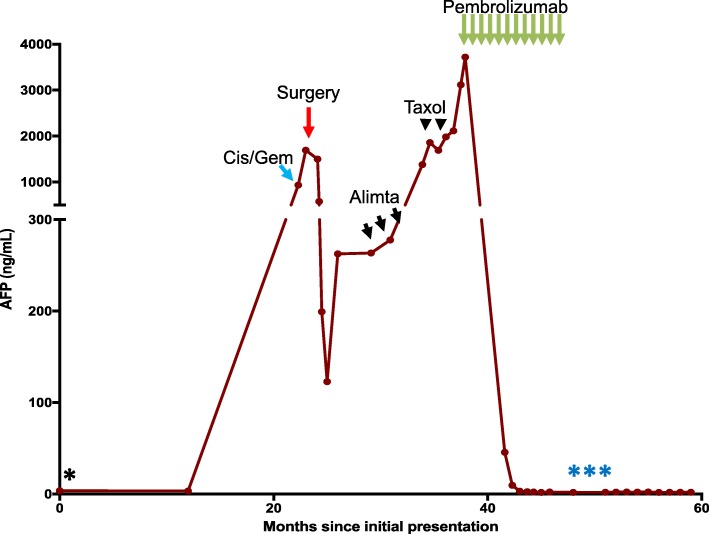Fig. 2.
Levels of AFP over the entire clinical course of this patient correlated strongly with tumor burden. The patient had initially (indicated by *) presented with hematuria and concerning cytology, but was lost to follow up. Upon re-presentation with hematuria more than one year later, he underwent full work-up and was found to have urothelial transitional cell carcinoma. Despite receiving neo-adjuvant chemotherapy (cisplatin/gemcitabine), his AFP level strongly increased and he underwent surgery without further delay leading to a sharp decline in AFP levels. Within 3 months following surgery, his AFP level rose again, and after initially declining chemotherapy, he was started on pemetrexed, receiving three cycles total (indicated by short black arrows), however, AFP levels continued to rise. He then received paclitaxel for two cycles (indicated by arrow heads) without response. Ultimately, pembrolizumab was started (indicated by a green arrows) to which he had a sharp decline in AFP levels, significant response on imaging and dramatic clinical improvement. AFP levels normalized after the third infusion. After 12 cycles of pembrolizumab, he was noted to have an isolated lung nodule and underwent wedge resection (indicated by blue ***). He remains off pembrolizumab with continued complete remission and normalized AFP levels

